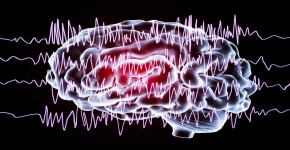 Launch apps instantly. Claim $200 credits on DigitalOcean
Launch apps instantly. Claim $200 credits on DigitalOcean
What is Social Anxiety?
Written by celebritieswife » Updated on: March 27th, 2024

Social anxiety is a mental health disorder that affects millions of people worldwide. It is characterized by an intense fear or discomfort in social situations, causing individuals to experience significant distress and impairment in their daily lives. If you are suffering from social anxiety so consult with the best psychiatrist if your symptoms are severe enough so take admission in the mental hospital in Lahore.
People with social anxiety have a persistent fear of being judged, scrutinized, or embarrassed in social settings. This fear can be so overwhelming that it makes everyday activities like going to work, school, or even talking to friends feel impossible.
Symptoms of Social Anxiety
The symptoms of social anxiety can vary from person to person but generally include both physical and emotional symptoms. Some common signs of social anxiety include:
Feeling extremely self-conscious in social situations
Fear of being watched or judged by others
Difficulty making eye contact or speaking in public
Physical symptoms like trembling, sweating, or blushing
Avoiding social situations altogether
Causes of Social Anxiety
The exact cause of social anxiety is not fully understood, but research suggests that a combination of genetic, environmental, and psychological factors may play a role. Some possible causes include:
Genetics: Studies have shown that social anxiety disorder can run in families, suggesting a genetic component.
Brain chemistry: Imbalances in certain neurotransmitters, such as serotonin and dopamine, have been linked to social anxiety.
Environmental factors: Traumatic or stressful life experiences can contribute to the development of social anxiety.
Learned behavior: Some individuals may develop social anxiety after witnessing or experiencing a traumatic social event.
Treatment for Social Anxiety
Social anxiety is a treatable condition, and there are various treatment options available. Some common treatments include:
Therapy: Cognitive-behavioral therapy (CBT) is the most effective form of therapy for social anxiety. It helps individuals identify their negative thought patterns and develop coping strategies to manage their symptoms.
Medication: Antidepressants and anti-anxiety medications can help reduce the symptoms of social anxiety. However, they should always be used in conjunction with therapy.
Self-help strategies: There are many self-help techniques that individuals with social anxiety can use, such as relaxation techniques and positive visualization.
Coping with Social Anxiety
Living with social anxiety can be challenging, but there are ways to cope and manage the symptoms. Some tips for coping with social anxiety include:
Practice self-care: Make sure to prioritize your physical and mental well-being by getting enough sleep, eating a healthy diet, and exercising regularly.
Challenge negative thoughts: Learn to recognize and challenge the negative thoughts that contribute to your social anxiety. Ask yourself if there is any evidence to support these thoughts.
Seek support: Joining a support group or talking to friends and family who understand can be helpful in managing social anxiety.
Set small goals: Start by setting small, achievable goals for yourself in social situations. Each time you accomplish one, it will boost your confidence and make the next goal seem less daunting.
Effects of Social Anxiety
Social anxiety can have a significant impact on an individual's life, affecting their relationships, career opportunities, and overall well-being. Some common effects of social anxiety include:
Isolation and loneliness: People with social anxiety often avoid social situations, which can lead to feelings of isolation and loneliness.
Difficulty at work or school: Social anxiety can make it challenging to perform well at work or school, leading to missed opportunities and a decreased quality of life.
Low self-esteem: Constantly worrying about how others perceive you can take a toll on your self-esteem and confidence.
Substance abuse: Some individuals may turn to alcohol or drugs as a way to cope with their social anxiety, leading to potential substance abuse problems.
Conclusion
Social anxiety is a common and treatable mental health disorder that can significantly impact an individual's life. If you or someone you know is struggling with social anxiety, seek professional help to manage the symptoms and improve overall well-being. Remember, you are not alone, and there is no shame in seeking support for your mental health. So don't hesitate to reach out and get the help you deserve. Keep in mind that with the right treatment and support, it is possible to overcome social anxiety and lead a fulfilling life.
Copyright © 2024 IndiBlogHub.com Hosted on Digital Ocean









Post a Comment
To leave a comment, please Login or Register